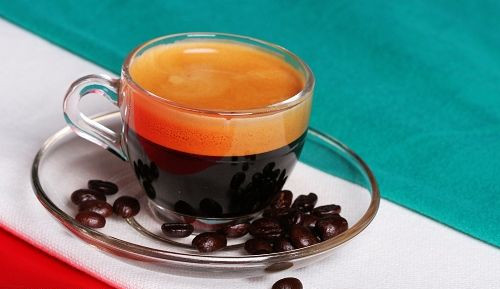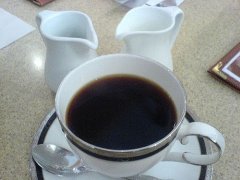The delicious Coffee, the various flavors of the Coffee, the various flavors and Styles of the Coffee.

Flavor [flavor]
It is the overall impression of aroma, acidity and mellowness, which can be used to describe the overall feeling of contrasting coffee.
Acidity [acidity]
It is the sour and strong quality of all the coffee grown on the plateau. Unlike bitterness or sour (sour), it has nothing to do with pH, but a refreshing and lively quality that promotes coffee to exert its functions of boosting the mind and clearing the taste.
Body [alcohol]
After drinking the coffee after conditioning, the taste of the coffee is left on the tongue. The change of mellowness can be as light as water to light, medium, high, fat, and even some Indonesian coffee is as thick as syrup.
Aroma [smell]
Aroma refers to the smell and aroma of coffee after conditioning. Bouquet is a less commonly used word that specifically refers to the taste of ground coffee powder. Aroma is usually specific and comprehensive. The words used to describe Aroma include: caramel, carbon roasted, chocolate, fruit, grass, malt, rich, rich, spicy and so on.
Bitter [bitter]
Bitterness is a basic sense of taste, and the sensory area is distributed at the base of the tongue. The bitterness of dark baking is deliberately created, but the most common cause of bitterness is too much coffee powder and too little water. Bitterness is not a consent word for sour.
Bland [light]
Coffee grown in the lowlands is usually quite light and tasteless. Coffee with insufficient powdered coffee and too much water will have the same light effect.
Briny [salty]
After brewing, if the coffee is overheated, it will produce a salty taste. The coffee in some coffee shops has this taste.
Earthy [aroma of soil]
Commonly used to describe Indonesian coffee with a spicy and earthy flavor. But the smell of mud does not refer to the smell of dirt on coffee beans. Some commercial coffees are mixed with cheap coffee, and the muddy smell may become dirty, apparently due to the dry, rough processing technology of laying coffee beans on the ground.
Exotic [uniqueness]
Describe coffee with its unique aroma and special flavor, such as flowers, fruits and spices. Coffee from East Africa and Indonesia usually has this property.
Mellow [aromatic alcohol]
It is an adjective for coffee with low to medium acidity and good balance.
Mild [mild]
It means that some kind of coffee has a harmonious and delicate flavor. Latin American premium coffee grown on the plateau is usually described as mild in texture. In addition, it is also a coffee term used to refer to all plateau coffee except those produced in Brazil.
Soft [soft]
Describe low-acidity coffee like Indonesian coffee; it can also be described as mellow or sweet.
Sour [acid]
A sense of taste in which the sensory area is mainly located at the back of the tongue and is characteristic of light-colored roasted coffee.
Spicy [Xiangxin]
Of a flavor or smell reminiscent of a particular spice. Some Indonesian plateau coffee (especially old coffee) contains the sweet smell of cardamom.
Strong [strong]
Technically, it describes the advantages and disadvantages of various tastes, or the relative ratio of coffee to water in a particular conditioned product. In terms of popular usage, strong describes the strong flavor of dark roasted coffee. In addition, it also misleads people into the illusion that it contains a lot of caffeine. In fact, canned light coffee is high in caffeine because it contains more decaf.
Sweet [sweet]
It is a widely used adjective, which is almost like fruit in nature and has something to do with the taste of wine. Coffee grown on the Costa Rican plateau usually has a pungent flavor.
Wild [wild]
Describe coffee as having extreme taste characteristics. If ordinary people cannot accept it, they will call it eccentric, but it may also be an attractive feature, depending on personal preference.
Winy [wine flavor]
Describe a charming flavor reminiscent of wine. Fruit-like acidity and smooth mellowness create a special contrast flavor. Kenyan coffee is the best example of wine flavor.
Important Notice :
前街咖啡 FrontStreet Coffee has moved to new addredd:
FrontStreet Coffee Address: 315,Donghua East Road,GuangZhou
Tel:020 38364473
- Prev

When was coffee introduced into China? Coffee growing in Taiwan Coffee Development in Yunnan and China
The history of the introduction of coffee into China is not long, and it was not until 1884 that coffee was first planted in Taiwan Province. In the mainland of the motherland, the earliest coffee cultivation began in Yunnan. At the beginning of the 20th century, French missionaries brought the first batch of coffee saplings to Binchuan County, Yunnan Province, and began to grow coffee in the mainland. Chinese people have been drinking tea for thousands of years.
- Next

The wonderful use of coffee in daily life inventory the various uses of coffee in addition to drinking coffee
① coffee grounds are placed in an ashtray to remove the odor and make it easier to extinguish the cigarette ash. ② coffee can refresh the mind, the smell of coffee is equivalent to absorbing lemon vitamin C, with whitening effect, people who do not drink coffee can give it a try. After eating garlic, green onions and other food, ③ can refresh his breath by drinking a cup of coffee. ④ put the coffee grounds in the shoe cabinet, you can
Related
- Can I make coffee a second time in an Italian hand-brewed mocha pot? Why can't coffee be brewed several times like tea leaves?
- Hand-brewed coffee flows with a knife and a tornado. How to brew it? What is the proportion of grinding water and water temperature divided into?
- What is the difference between Indonesian Sumatra Mantinin coffee and gold Mantinin? How to distinguish between real and fake golden Mantelin coffee?
- What does bypass mean in coffee? Why can hand-brewed coffee and water make it better?
- Unexpected! Ruixing Telunsu lattes use a smoothie machine to foam milk?!
- % Arabia's first store in Henan opens into the village?! Netizen: Thought it was P's
- Does an authentic standard mocha coffee recipe use chocolate sauce or powder? Mocha Latte/Dirty Coffee/Salty Mocha Coffee Recipe Share!
- What is the difference between Vietnam egg coffee and Norway egg coffee? Hand-brewed single product coffee filter paper filter cloth filter flat solution!
- What is the difference between sun-cured and honey-treated coffee? What are the differences in the flavor characteristics of sun-honey coffee?
- How to make Italian latte! How much milk does a standard latte use/what should the ratio of coffee to milk be?

